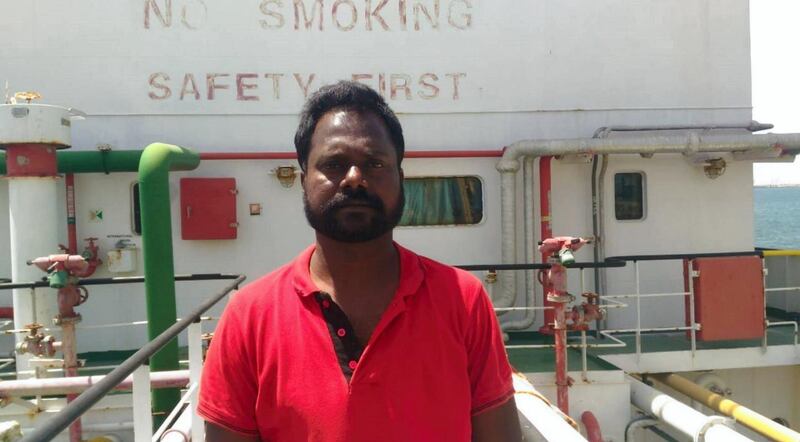While the rest of us sit comfortably on dry land, several ships are floating in UAE waters, their crews abandoned without pay or the necessary paperwork to return to shore. Some have been stuck out at sea for more than two years. Their ordeal is hard to imagine. Certainly, there is no starker illustration of negligence than hardworking people, who have left home to provide a better life for themselves and their families, being deserted in the middle of the ocean, without support, thousands of miles from friends and loved ones.
The vessel that has received the most news coverage recently has been the MV Azraqmoiah, operated by Elite Marine Way Services, a company based in Dubai. It is one of a number of ships owned by the same firm that has run into financial trouble and then been left adrift. Fortunately, it was recently towed into Dubai Maritime City, where procedures have begun to have its crew repatriated to India.
The toll of their long months away from home has been heavy. That births and deaths have happened without them is simply part of a seaman’s life, but the uncertainty and financial hardship has devastated some marriages. Many of the men are traumatised and returning to lives in which nothing remains the same. Chief engineer Guru Ganesan told The National: “I know I will have to get medical help as soon as I go home. I am mentally and physically broken.” In order to return, many have accepted pay offers far below what they are owed. Dipak Mishra, captain of the cargo ship Tamim Aldar. has, for instance, agreed to take less than half the $100,000 (Dh367,000) he is due for the past 24 months of work. Some have also reported bullying by unscrupulous agents. The crews of other vessels, meanwhile, remain at sea, determined to be paid in full.
The government and independent agencies dedicated to merchant sailors have worked hard to find a solution to this situation. Shipping regulators have put in place strict measures to end the abandonment of vessels in the UAE. These include compulsory insurance to cover salaries for up to four months, as well as repatriation costs. As welcome and necessary as these steps are, seafaring is a vital, dangerous and time-honoured job. The very least these men deserve is to be employed by companies that look out for their welfare and treat them fairly.





